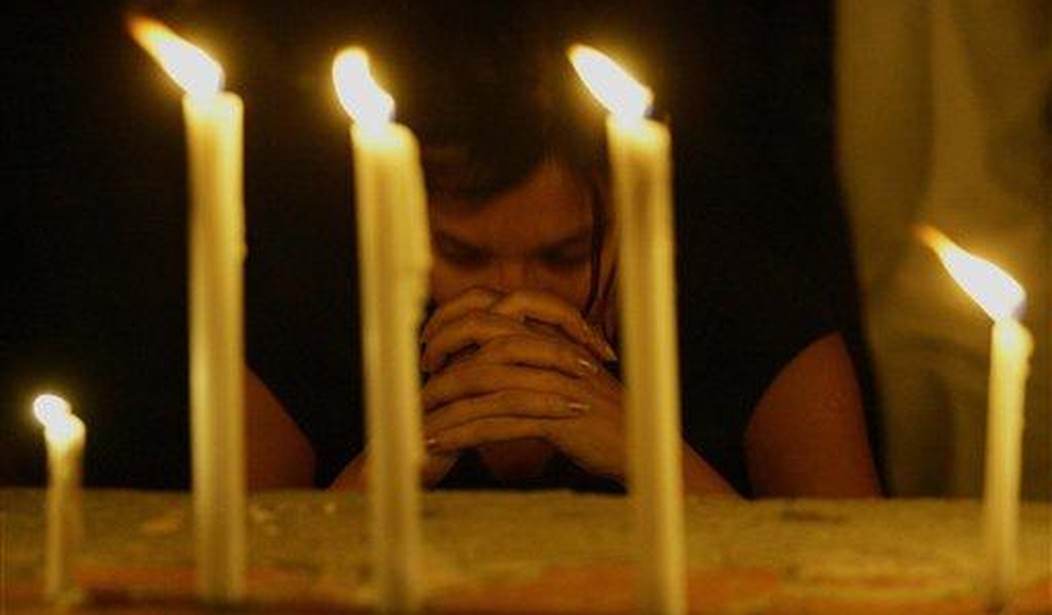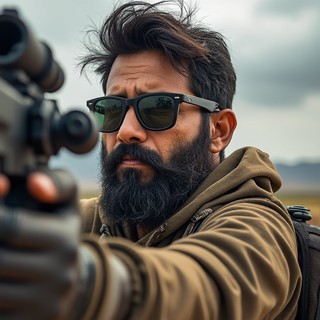Thirteen years ago on this day, India’s megapolis Mumbai was the target of an unprecedented Islamic terror attack. This attack is called “26/11” in India because of the DD-MM-YY date format used there, and because of its significance analogous to 9/11 in the United States.
Not only did this terror attack change my outlook on guns, but it also eventually turned me into a Second Amendment advocate. I co-wrote a book (apologies for the shameless commercial pitch) titled, “Each One, Teach One: Preserving and protecting the Second Amendment in the 21st century and beyond,” which recognized the need to preserve the Second Amendment not through the courts, but through culture, by teaching people to shoot and bringing new gun owners into the fold via grassroots evangelizing.
As I wrote in the first chapter of the book:
About a year after the attacks, I saw Dan Reed’s documentary, “Terror in Mumbai,” which shone a bright light on the frail humanity of law enforcement. There were a number of policemen, some armed with bolt-action rifles and handguns, present at the Chhatrapati Shivaji Terminus when the terrorists started shooting people. Most of the policemen froze or retreated into hiding. When the time came to do their duty, many of them failed. This was a betrayal that cost people their lives. To their credit, some of them rallied, fought back against the better-equipped terrorists with the weapons they had, and lost their lives. But most of the killing had already been done by the time the police reacted.
This weakness was not limited to the railway and local police. It was also evident in the delayed deployment of the paramilitary commandos who waited for hours in New Delhi for a plane to fly them to Mumbai and the inordinate amount of time—four days—it took to sweep every site clean. First and foremost, the behavior of law enforcement officers showed a lack of preparedness and a lack of foreknowledge regarding such a ferocious attack.
This was my “red pill” moment, the red color unfortunately being the color of blood of the 166 innocent victims. Since the Mumbai attack, I have also seen the imperfection of law enforcement in the United States, the most egregious example of which is the Parkland massacre.
The trust that people place in the authorities is broken repeatedly in big ways all over the world.
Lest anyone think that I am being unfairly critical of the intelligence and security apparatus of India, I would like to point out that such incompetence and ineffectiveness exists around the world. American intelligence missed 9/11. Russian intelligence missed the Beslan school crisis, and their armed forces mishandled the subsequent massacre. British intelligence missed the July 7, 2005 bombings. Spanish intelligence missed the Madrid train bombings. Kenyan intelligence missed the Westgate Shopping Mall and Garissa College attacks. French intelligence missed the November 2015 Paris attack. The list goes on. People around the world trust their governments for their security, and their governments fail miserably more often than people realize.
When the Mumbai attack happened in 2008, I knew nothing about guns. As time progressed, I took intro classes and eventually became a gun owner. The process of becoming a gun owner also took me down the path of research into the history of the United States. And going to the gun range and meeting people destroyed every media trope I had in my mind about gun owners.
The Mumbai attacks changed my outlook in a fundamental way. They changed the way I see government, its purpose, and its relation to citizens. They changed the way I see my adopted country, the United States of America, its Constitution, and its Bill of Rights. They changed the way I see the rural gun-toting “bitter clingers” who are regularly dissed by the American media. They changed the way I react to the snickering and smug condescension towards gun owners I hear in some of my social circles.
[…]
As I started learning how to handle firearms, I became more comfortable with them. As I researched the history behind the Second Amendment, I became convinced by the idea that ordinary citizens have a natural right to arms. And the more I informed myself on contemporary gun control debates, the more I became convinced that this freedom is especially fragile, and that it is constantly under the threat of being eroded into oblivion.
My heart still weeps for the victims of the Mumbai 26/11 attack. If an attack like that with such high casualties must never again be allowed to happen, a fundamental part of the solution is the right of the people to keep and bear arms. On this sad day, I hope Americans never ever give up that right, fight tooth and nail to gain back what’s been taken away from them, and never tire in fending off future attempts to abridge that freedom.








Join the conversation as a VIP Member